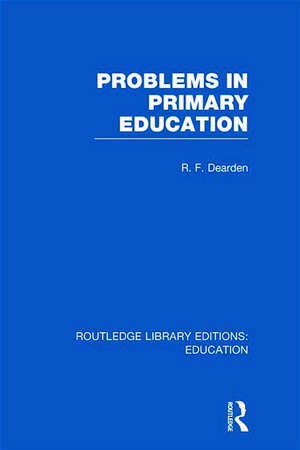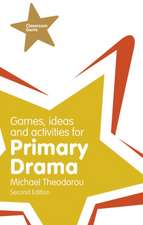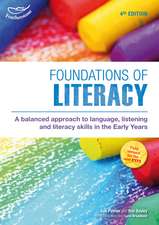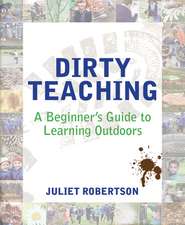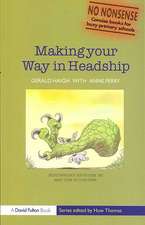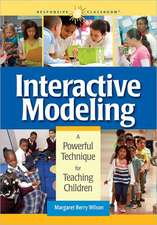Problems in Primary Education (RLE Edu K): Routledge Library Editions: Education
Autor R Deardenen Limba Engleză Hardback – 8 dec 2011
Din seria Routledge Library Editions: Education
-
 Preț: 379.48 lei
Preț: 379.48 lei -
 Preț: 400.93 lei
Preț: 400.93 lei -
 Preț: 377.16 lei
Preț: 377.16 lei -
 Preț: 379.32 lei
Preț: 379.32 lei -
 Preț: 401.33 lei
Preț: 401.33 lei - 8%
 Preț: 375.32 lei
Preț: 375.32 lei - 18%
 Preț: 1298.07 lei
Preț: 1298.07 lei - 34%
 Preț: 819.90 lei
Preț: 819.90 lei - 26%
 Preț: 247.40 lei
Preț: 247.40 lei - 34%
 Preț: 819.90 lei
Preț: 819.90 lei - 34%
 Preț: 819.90 lei
Preț: 819.90 lei - 34%
 Preț: 819.90 lei
Preț: 819.90 lei - 34%
 Preț: 991.00 lei
Preț: 991.00 lei - 34%
 Preț: 822.76 lei
Preț: 822.76 lei - 34%
 Preț: 821.53 lei
Preț: 821.53 lei - 26%
 Preț: 259.98 lei
Preț: 259.98 lei - 34%
 Preț: 764.20 lei
Preț: 764.20 lei - 34%
 Preț: 819.90 lei
Preț: 819.90 lei - 34%
 Preț: 761.85 lei
Preț: 761.85 lei - 34%
 Preț: 986.91 lei
Preț: 986.91 lei - 55%
 Preț: 541.50 lei
Preț: 541.50 lei - 34%
 Preț: 762.01 lei
Preț: 762.01 lei - 27%
 Preț: 261.37 lei
Preț: 261.37 lei - 34%
 Preț: 764.20 lei
Preț: 764.20 lei - 34%
 Preț: 762.97 lei
Preț: 762.97 lei - 34%
 Preț: 819.90 lei
Preț: 819.90 lei - 34%
 Preț: 986.91 lei
Preț: 986.91 lei - 34%
 Preț: 821.53 lei
Preț: 821.53 lei - 34%
 Preț: 819.90 lei
Preț: 819.90 lei - 34%
 Preț: 819.90 lei
Preț: 819.90 lei - 34%
 Preț: 821.13 lei
Preț: 821.13 lei - 34%
 Preț: 2100.27 lei
Preț: 2100.27 lei - 34%
 Preț: 819.90 lei
Preț: 819.90 lei - 34%
 Preț: 819.90 lei
Preț: 819.90 lei - 34%
 Preț: 764.20 lei
Preț: 764.20 lei - 34%
 Preț: 819.90 lei
Preț: 819.90 lei - 34%
 Preț: 986.91 lei
Preț: 986.91 lei - 34%
 Preț: 764.20 lei
Preț: 764.20 lei - 36%
 Preț: 819.90 lei
Preț: 819.90 lei - 34%
 Preț: 4048.76 lei
Preț: 4048.76 lei - 34%
 Preț: 736.38 lei
Preț: 736.38 lei - 34%
 Preț: 819.90 lei
Preț: 819.90 lei - 36%
 Preț: 821.53 lei
Preț: 821.53 lei - 34%
 Preț: 819.90 lei
Preț: 819.90 lei - 34%
 Preț: 819.90 lei
Preț: 819.90 lei - 36%
 Preț: 819.90 lei
Preț: 819.90 lei - 34%
 Preț: 819.90 lei
Preț: 819.90 lei - 36%
 Preț: 819.90 lei
Preț: 819.90 lei
Preț: 764.20 lei
Preț vechi: 1154.58 lei
-34% Nou
Puncte Express: 1146
Preț estimativ în valută:
146.23€ • 153.08$ • 120.100£
146.23€ • 153.08$ • 120.100£
Carte tipărită la comandă
Livrare economică 07-21 aprilie
Preluare comenzi: 021 569.72.76
Specificații
ISBN-13: 9780415697613
ISBN-10: 0415697611
Pagini: 144
Dimensiuni: 156 x 234 x 14 mm
Greutate: 0.45 kg
Ediția:1
Editura: Taylor & Francis
Colecția Routledge
Seria Routledge Library Editions: Education
Locul publicării:Oxford, United Kingdom
ISBN-10: 0415697611
Pagini: 144
Dimensiuni: 156 x 234 x 14 mm
Greutate: 0.45 kg
Ediția:1
Editura: Taylor & Francis
Colecția Routledge
Seria Routledge Library Editions: Education
Locul publicării:Oxford, United Kingdom
Public țintă
General, Postgraduate, Professional, and UndergraduateCuprins
Preface. Acknowledgements. Part 1: Aims and Principles. 1. Who Should Determine Aims? 2. Aims and Objectives. 3. Curricular aims and Curricular Integration. 4. Child-Centred Education. Part 2: Teaching and Learning. 5. The Concept of Teaching. 6. Learning How to Learn and Learning by Discovery. 7. What is the Integrated Day? 8. Reading and Research. 9. Competition in Education. Notes and References. Index.
Descriere
The first part of the book discusses aims, who should determine them and how they might be determined. The second part discusses some more specific topics of learning and teaching, such as learning how to learn, the integrated day and the use of competition. The author distinguishes three broad levels of thought in looking at schools: the details of choice and decision; the general principles which are, or ought to be, guiding that detailed practice; and the theoretical commentaries on the guiding principles available from the various disciplines which constitute the study of education.
